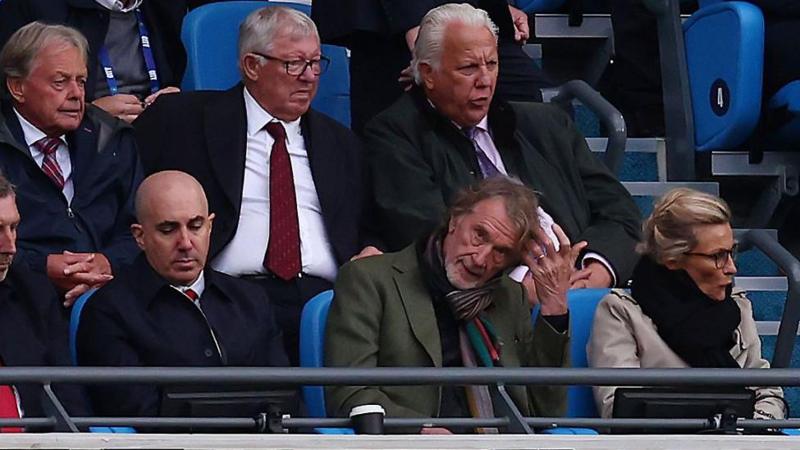Can Amorim Revive Man Utd After Latest Disappointing Performance?




Following Manchester United’s recent disappointing performance, multibillionaire businessman Jim Ratcliffe's interest in the club has become a topic of intense discussion among fans and analysts alike. Given the team's struggles on the pitch, the INEOS chief, who has not been shy about his desire to acquire a stake in the iconic football club, might be observing the current situation with a mix of concern and opportunity.
Manchester United, with its rich history and global fanbase, is considered one of the crown jewels of international football. However, the team's inconsistent performances in recent seasons have left much to be desired. This dip in form has not only frustrated fans but also attracted the attention of potential investors like Ratcliffe, who see an opportunity to restore the club to its former glory while expanding their own business empires.
Jim Ratcliffe, Britain’s richest man, made his fortune by founding INEOS, a multinational chemicals company. His interest in sports is not limited to football—INEOS already owns the cycling group formerly known as Team Sky and supports a sailing team in the America’s Cup. But football, with its massive global appeal, represents a unique allure, and Manchester United is arguably one of the sport's most prestigious clubs.
Ratcliffe’s approach to potential involvement with Manchester United is likely to be calculated. The current state of the club could be seen as a chance to buy in at a moment when the value might be deflated due to poor results, subsequently leading to lucrative returns should the club's fortunes be reversed under new stewardship. Investment in the sports sector, while high risk, can yield substantial rewards, especially when associated with globally recognized brands like Manchester United.
From a business perspective, owning a part of Manchester United isn’t just about the sports side of things. It’s about the commercial potential that comes with it. The club has a robust commercial strategy, involving high-profile sponsorship deals and merchandising, which ensures a steady revenue stream regardless of on-the-field results. A savvy businessman like Ratcliffe would be well aware of this aspect and likely views it as a vital component of the investment appeal.
However, turning around the club's fortunes would not merely be a financial transaction. It would require a deep understanding of the football industry, including fan expectations, club culture, and competitive dynamics. Ratcliffe's success in other sports ventures shows he’s capable of grasping these nuances, potentially bringing a refreshing change to the club’s management style which might focus more on long-term sustainability rather than short-term gains.
Moreover, a change in ownership could also resonate well with the supporters if it is seen as an effort to genuinely improve the club’s prospects rather than purely as a financial play. Manchester United’s fanbase is famously passionate and vocal about maintaining the club’s heritage and ambitions, aspects that Ratcliffe, as a self-professed lifelong fan of the club, is likely familiar with.
From a broader perspective, Ratcliffe’s potential involvement in Manchester United could also shake up the Premier League landscape. It could prompt other clubs to re-evaluate their ownership and financial strategies, leading to more competitive balance or sparking further investments across the league.
In conclusion, as Jim Ratcliffe watches Manchester United navigate through these challenging times, his thoughts are likely a blend of critical analysis and strategic planning. His potential investment could herald a new era for the club, marked by a return to its competitive roots buttressed by robust financial health. For Ratcliffe, it’s not just about the love of the game, but about the fusion of passion, pride, and profitability.